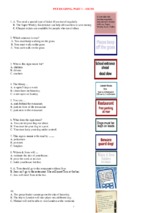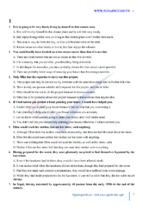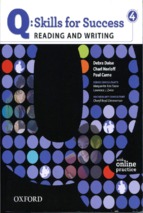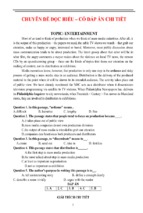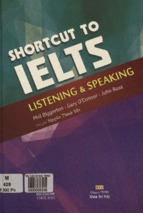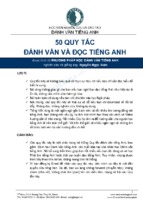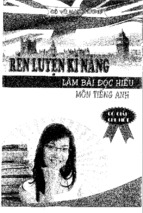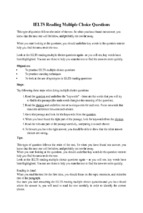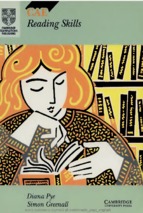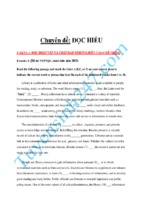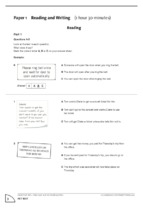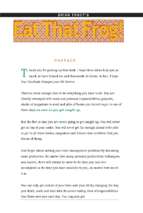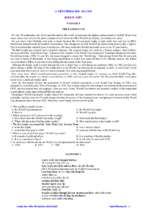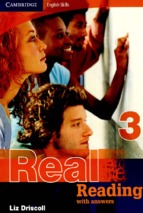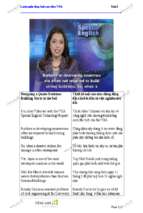A M E R I C A N CRIME STORIES
Criminals in the United States of America are much the
same as criminals in any other place. They lie, cheat, steal,
carry guns, break into houses — and murder people.
Sometimes they get caught, sometimes they don't. And
some of them have bad dreams for the rest of their lives.
These seven stories by well-known American writers
show us the many faces of crime. There are murders of
passion, and of revenge; murders that look like suicides or
accidents. There is robbery and mugging, fear and hate,
love and laziness. There are the innocent and the guilty —
but which are which? And there are the detectives: the
amateur Louise, who won't accept that her cousin's death
was suicide, and who goes looking for a lipstick; and the
coolly professional private eye, who knows whose hand
is behind the machine guns and hand grenades on a
stormy night in Couffignal.
We begin with Death Wish, with a man leaning over the
Morrissey Bridge late at night- a man with dark thoughts
of suicide in his mind . ..
OXFORD BOOKWORMS LIBRARY
Crime & Mystery
American Crime Stories
Stage 6 (2500 headwords)
Series Editor: Jennifer Bassett
Founder Editor: Tricia Hedge
Activities Editors: Jennifer Bassett and Christine Lindop
R E T O L D BY J O H N ESCOTT
American Crime Stories
OXFORD
UNIVERSITY
PRESS
OXFORD
U N I V E R S I T Y PRESS
Great Clarendon Street, Oxford 0x2 6DP
Oxford University Press is a department of the University of Oxford.
It furthers the University's objective of excellence in research, scholarship,
and education by publishing worldwide in
Oxford New York
Auckland Cape Town Dares Salaam Hong Kong Karachi
Kuala Lumpur Madrid Melbourne Mexico City Nairobi
New Delhi Shanghai Taipei Toronto
With offices in
Argentina Austria Brazil Chile Czech Republic France Greece
Guatemala Hungary Italy Japan Poland Portugal Singapore
South Korea Switzerland Thailand Turkey Ukraine Vietnam
OXFORD and OXFORD ENGLISH are registered trade marks of
Oxford University Press in the UK and in certain other countries
This simplified edition © Oxford University Press 2000
The moral rights of the author have been asserted
Database right Oxford University Press (maker)
First published in Oxford Bookworms 1996
8 10 12 14 15 13 11 9 7
No unauthorized photocopying
All rights reserved. No part of this publication may be reproduced,
stored in a retrieval system, or transmitted, in any form or by any means,
without the prior permission in writing of Oxford University Press,
or as expressly permitted by law. or under terms agreed with the appropriate
reprographics rights organization. Enquiries concerning reproduction
outside the scope of the above should be sent to the ELT Rights Department,
Oxford University Press, at the address above
You must not circulate this book in any other binding or cover
and you must impose this same condition on any acquirer
Any websites referred to in this publication are in the public domain and
their addresses are provided by Oxford University Press for information only.
Oxford University Press disclaims any responsibility for the content
iSBN-13: 978 0 19 423079 7
ISBN-IO: 0194230791
A complete recording (in American English) of this Bookworms edition of
American Crime Stories is available on cassette ISBN 0 194238886
Typeset by Vvyvern Typesetting Ud, Bristol
Printed in Spain by Unigraf S.L
Illustrated by: Stephen Player
The publishers have made every effort to contact the copyright holders of the
photographs reproduced on the cover of this title, but have been unable 10 do so.
If the copyright holders would like to contact the publishers, the publishers
would be happy to pay an appropriate reproduction fee.
CONTENTS
i
INTRODUCTION
ACKNOWLEDGEMENTS
Death Wish
Lawrence
viii
1
Block
Death on Christmas Eve
11
Stanley Ellin
T h e Heroine
21
Patricia Highsmith
Ride the Lightning
John
33
Lutz
The Lipstick
Mary
Roberts
49
Rinehart
Lazy Susan
Nancy
69
Pickard
The Gutting of Couffignal
Dashiel
74
Hammett
GLOSSARY
103
ACTIVITIES: Before Reading
106
ACTIVITIES: While Reading
107
ACTIVITIES: After Reading
110
ABOUT THE AUTHORS
115
ABOUT BOOKWORMS
117
ACKNOWLEDGEMENTS
Death Wish
LAWRENCE BLOCK
The publishers are grateful to the following for their kind
permission to adapt copyright material:
Knox Burger Associates Ltd for Death Wish, copyright ©
Lawrence Block 1967,1993;
Curtis Brown Ltd for Death on Christmas Eve by Stanley Ellin;
The Robert Lantz-Joy Harris Literary Agency Inc for The
Gutting of Couffignal, copyright © The Estate of Dashiel
Hammett;
Tanja Howarth Literary Agency for The Heroine by Patricia
Highsmith;
The David Grossman Literary Agency for Ride the Lightning by
John Lutz, first published in Alfred Hitchcock's Mystery
Magazine, copyright © 1984 by Davis Publications Inc;
Meredith Bernstein Literary Agency Inc for Lazy Susan by Nancy
Pickard;
Uli Rushby-Smith & Shirley Stewart for The Lipstick by Mary
Roberts Rinehart.
The publishers have been unable to trace all the copyright holders
for The Lipstick by Mary Roberts Rinehart, but if contacted, will
be pleased to rectify any errors or omissions at the earliest
opportunity.
T
he cop saw the car stop on the bridge but didn't think too
much about it. People often stopped their cars on the bridge
late at night, when there was not much traffic. The bridge was
over the deep river that cut the city neatly in two, and the center
of the bridge provided the best view of the city.
Suicides liked the bridge, too. The cop didn't think of that
until he saw the man get out of the car, walk slowly along the
footpath at the edge, and put a hand on the rail. There was
something about that lonely figure, something about the grayness
of the night, the fog coming off the river. The cop looked at him
and swore, and wondered if he could get to him in time.
He didn't want to shout or blow his whistle because he knew
what shock or surprise could do to a probable suicide. Then the
man lit a cigarette, and the cop knew he had time. They always
smoked all of that last cigarette before they went over the edge.
When the cop was within ten yards of him, the man turned,
gave a slight jump, then nodded as if accepting that the moment
had passed. He appeared to be in his middle thirties, tall with a
long narrow face and thick black eyebrows.
'Looking at the city?' said the cop. 'I saw you here, and
thought I'd come and have a talk with you. It can get lonely at
this hour of the night.' He patted his pockets, pretending to look
for his cigarettes and not finding them. 'Got a spare cigarette on
you?' he asked.
1
American Crime Stories
Death Wish
The man gave him a cigarette and lit it for him. The cop
thanked the man and looked out at the city.
'Looks pretty from here,' he said. 'Makes a man feel at peace
with himself.'
'It hasn't had that effect on me,' the man said. 'I was just
thinking about the ways a man could find peace for himself.'
'Things usually get better sooner or later, even if it takes a
little while,' the cop said. 'It's a tough world, but it's the best
we've got, and you're not going to find a better one at the bottom
of a river.'
The man said nothing for a long time, then he threw his
cigarette over the rail and watched it hit the water. He turned to
face the cop. 'My name's Edward Wright. I don't think I'd have
done it. Not tonight.'
'Something particular bothering you?' said the cop.
' N o t . . . anything special.'
'Have you seen a doctor? That can help, you know.'
'So they say.'
'Want to get a cup of coffee?' said the cop.
The man started to say something, then changed his mind.
He lit another cigarette and blew out a cloud of smoke. 'I'll be
all right now,' he said. 'I'll go home, get some sleep. I haven't
been sleeping well since my wife —'
'Oh,' the cop said.
'She died. She was all I had and, well, she died.'
The cop put a hand on his shoulder. 'You'll get over it, Mr
Wright. Maybe you think you can't live through it, that nothing
will be the same, but—'
'I'd better get home,' the man said. 'I'm sorry to cause trouble.
I'll try to relax, I'll be all right.'
The cop watched him drive away and wondered if he should
have taken him into the police station. But if you started taking
in everyone who thought about suicide, you'd never stop. He
went back towards the other side of the bridge. When he reached
it, he took out his note-book and wrote down the name, Edward
Wright. So he would remember what the man meant, he added,
Big Eyebrows, Wife Dead, Thought About Jumping.
He listened next to a dream. Almost all his patients told him
their dreams, which annoyed the psychiatrist, who never
remembered having a dream of his own. He listened to this
dream, glancing now and then at his watch and wishing the hour
would end. The dream, he knew, indicated a decreasing wish to
live, a development of the death wish, and a desire for suicide
that was prevented only by fear. But for how long?
2
3
The psychiatrist stroked his pointed beard and looked at the
patient.
' . . . no longer worth living,' the man was saying. 'I almost
killed myself the night before last. I almost jumped from the
Morrissey Bridge.'
'And?'
'A policeman came along. I wouldn't have jumped anyway.'
'Why not?'
'I don't know.'
The endless talk of patient and doctor went on. Sometimes
the doctor went through a whole hour without thinking at all,
making automatic replies but not really hearing a word that was
said to him. I wonder, he thought, whether I do these people
any good at all. Perhaps they only want to talk, and need a
listener.
American Crime Stories
Another dream. The psychiatrist closed his eyes and stopped
listening. Five more minutes, he told himself, and then this fool
would leave.
The doctor looked at the man, saw the heavy eyebrows, the
expression of guilt and fear. 'I have to have my stomach pumped,
Doctor,' the man said. 'Can you do it here or do we have to go
to a hospital?'
'What's the matter with you?'
'Pills.'
'Sleeping pills? How many did you take?'
'Twenty,' said the man.
'Ten can kill you,' said the doctor. 'How long ago did you
take them?'
'Half an hour. No, maybe twenty minutes.'
'And then you decided not to act like a fool, yes? Twenty
minutes. Why wait this long?'
'I tried to make myself sick.'
'Couldn't do it? Well, we'll try the stomach pump,' the doctor
said.
It was very unpleasant, but finally the doctor said, 'You'll
live.'
'Thank you, Doctor.'
'Don't thank me. I'll have to report this.'
'I wish you wouldn't. I'm . . . I'm under a psychiatrist's care.
It was more an accident than anything else, really.'
The doctor raised his eyebrows. 'Twenty pills? You'd better
pay me now. I can't risk sending bills to people who may be
suicides.'
4
Death Wish
'This is a fine gun for the price,' the clerk said. 'But for just a
few dollars more—'
'No, this will be satisfactory. I'll need a box of bullets.'
The clerk gave him a box. 'Or three boxes for—'
'Just the one.'
The shopkeeper opened a book. 'You'll have to sign there, to
keep the law happy.' He checked the signature when the man
had finished writing. 'I'm supposed to see something to identify
you, Mr Wright. Can I see your driver's license?' He checked
the license, compared the signatures, and wrote down the license
number.
'Thank you,' said the man.
'Thank you, Mr Wright. I think you'll get a lot of use out of
that gun.'
'I'm sure I will.'
At nine o'clock that night, Edward Wright heard his back
doorbell ring. He walked downstairs, glass in hand, finished his
drink and went to the door. He was a tall man with thick black
eyebrows. He looked outside, recognized his visitor, and opened
the door.
His visitor put a gun in Edward Wright's stomach.
'Mark—'
'Invite me in,' the man said. 'It's cold out here.'
'Mark, I don't—'
'Inside.'
In the living room, Edward Wright stared at the gun and knew
that he was going to die.
'You killed her, Ed,' the visitor said. 'She wanted a divorce.
You couldn't let her have that, could you? I told her it was
5
American Crime Stories
dangerous to tell you, that you were nothing but an animal. I
told her to run away with me and forget you but she wanted to
do the right thing, and you killed her.'
'You're crazy!'
'You made it look like an accident, didn't you? How did you
do it? Tell me, or this gun goes off.'
'I hit her.' Wright looked at the gun, then at the man. 'I hit
her a few times, then I threw her down the stairs. You can't go
to the police with this, you know. They can't prove it and they
wouldn't believe it.'
'We won't go to the police,' the man said. 'I didn't go to them
at the beginning. They didn't know of a motive for you, did
they? I could have told them a motive, but I didn't go, Edward.
Sit down at your desk. Take out a piece of paper and a pen.
There's a message I want you to write.'
'You can't—'
'Write I can't go on any longer. This time I won't fail, and
sign your name.' He put the gun against the back of Edward
Wright's shaking head.
'You'll hang for it, Mark.'
'Suicide, Edward.'
'No one will believe I was a suicide, note or no note. They
won't believe it.'
'Just write the note, Edward. Then I'll give you the gun and
leave you to do what you must do.'
'You—'
'Just write the note. I don't want to kill you, Edward. I want
you to write the note, and then I'll leave you here.'
Wright did not exactly believe him, but the gun at his head
left him little choice. He wrote the note and signed his name.
6
Death Wish
'Just write the note.'
'Turn round, Edward.'
He turned and stared. The man looked very different. He
had put on false eyebrows and false hair, and he had done
something to his eyes.
'Do you know who I look like now, Edward? I look like you.
American Crime Stories
Death Wish
Not exactly like you, of course, but a good imitation of you.'
'You — you've been pretending to be me? But why?'
'You just told me you're not the suicidal type, Edward. But
you'd be surprised at your recent behavior. There's a policeman
who had to talk you out of jumping off the Morrissey Bridge.
There's the psychiatrist Who has been seeing you and hearing
you talk about suicide. There's the doctor who had to pump
your stomach this afternoon. It was most unpleasant. I was
worried my false hair might slip, but it didn't. All those things
you've been doing, Edward. Strange that you can't remember
them. Do you remember! buying this gun this afternoon?'
fingerprints from the gun and put Wright's fingerprints on it.
He left the note on top of the desk, put the psychiatrist's business
card into Wright's wallet, and the receipt for the gun into
Wright's pocket.
'You shouldn't have killed her,' he said to Wright's dead body.
Then, smiling privately, he went out of the back door and walked
off into the night.
'I—'
'You did, you know. Only an hour ago. You had to sign for
it. Had to show your driver's license, too.'
'How did you get my driver's license?'
'I didn't. I created it.' The man laughed softly. 'It wouldn't
fool a policeman, but no policeman saw it. It fooled the clerk
though. Not the suicidal type? All those people will swear you
are, Edward.'
'What about my friends? The people at the office?'
'They'll all help. They'll start to remember your moods. I'm
sure you've been acting very shocked and unhappy about her
death. You had to play the part, didn't you? You should never
have killed her, Edward. I loved her, even if you didn't. You
should have let her go, Edward.'
Wright was shaking with fear. 'You said you weren't going
to murder me. You were going to leave me with the gun—'
'Don't believe everything you hear,' the man said, and, very
quickly, he pushed the gun into Wright's mouth and shot him.
Afterwards, he arranged things neatly, wiped his own
8
Death on Christmas Eve
STANLEY ELLIN
A
s a child I had been impressed by the Boerum House. It was
fairly new then, and shiny with new paint - a huge Victorian
building. Standing in front of it this early Christmas Eve,
however, I could find no echo of that youthful impression. It
was all a depressing gray now, and the curtains behind the
windows were drawn completely so that the house seemed to
present blindly staring eyes to the passerby.
When I knocked my stick sharply on the door, Celia opened
it. 'There is a doorbell,' she said.
She was still wearing the long unfashionable and badly
wrinkled black dress which must have been her mother's, and
she looked more than ever like old Katrin had in her later years:
the thin bony body, the tight thin line of her lips, the colorless
hair pulled back hard enough to remove every wrinkle from her
forehead. She reminded me of a steel trap ready to shut down
on anyone who touched her incautiously.
I said, 'I am aware that the doorbell is not connected, Celia,'
and walked past her into the hall. She banged the door shut,
and instantly we were in half-darkness.
I put out my hand for the light switch, but Celia said sharply,
'This is no time for lights! There's been a death in this house,
you know that.'
'I have good reason to know,' I said, 'but your manner now
does not impress me.'
11
American Crime Stories
Death on Christmas Eve
'She was my brother's wife, and very dear to me.'
I moved towards her and rested my stick on her shoulder.
'Celia,' I said, 'as your family's lawyer, let me give you a word
of advice. The inquest is over, and you've been cleared. But
nobody believed you then, and nobody ever will. Remember
that.'
She pulled away. 'Is that what you came to tell me?'
'I came because I knew your brother would want to see me
today. I suggest you keep away while I talk to him.'
'Keep away from him yourself!' she cried. 'He was at the
inquest and saw them clear my name. In a little while he'll forget
the terrible things he thinks about me. Keep away from him so
that he can forget.'
I started walking cautiously up the dark stairs, but she
followed me. 'I prayed,' she said, 'and was told that life is too
short for hatred. So when he comes to me, I'll forgive him.'
I reached the top of the stairs and almost fell over something.
I swore, then said, 'If you're not going to use lights, you should
at least keep the way clear. Why don't you get these things out
of here?'
'They are poor Jessie's things,' she said. 'Ready for throwing
out. It hurts Charlie to see anything of hers. I knew it would be
best to throw them out.' Alarm came into her voice. 'But you
won't tell him, will you?'
I went into Charlie's room and closed the door behind me.
The curtains were drawn, but the ceiling light showed me that
he was lying on his bed with an arm over his eyes. Slowly, he
stood up and looked at me.
'Well,' he said at last, nodding towards the door, 'she didn't
give you any light on the way up, did she?'
'No,' I said, 'but I know the way.'
'She gets around better in the dark than I do in the light. She'd
rather have it that way, too. Otherwise she might look into a
mirror and be frightened of what she saw.' He gave a short laugh.
'All you hear from her now is how she loved Jessie, and how
sorry she is. Maybe she thinks if she says if often enough, people
will believe it.'
I dropped my hat and stick on the bed and put my overcoat
beside them. Then I took out a cigarette and waited until he
found a match to light it for me. His hand shook violently.
Charlie was five years younger than Celia, but seeing him then I
thought he looked ten years older. His hair was so fair that it
was difficult to see whether or not he was going gray. He had
not shaved for several days, and there were huge blue-black bags
under his eyes. He stared at me, pulling uncertainly at his
mustache.
12
13
'You know why I wanted to see you,' he said.
'I can imagine,' I said, 'but I'd rather you told me.'
'It's Celia,' he said. 'I want her to get what she deserves. Not
prison. I want the law to take her and kill her, and I want to be
there to watch it.'
'You were at the inquest, Charlie,' I said. 'You saw what
happened. Celia's cleared and, unless more evidence can be
produced, she stays cleared.'
'What more evidence does anyone need! They were arguing
violently at the top of the stairs. Celia threw Jessie down to the
bottom and killed her. That's murder, isn't it?'
I was tired, and sat down in the old leather armchair. 'There
were no witnesses,' I said.
'I heard Jessie scream and I heard her fall,' he said, 'and when
American Crime Stories
Death on Christmas Eve
I ran out and found her there, I heard Celia bang her door shut.
She pushed Jessie!'
'But you didn't see anything. And Celia says she wasn't there.
As you weren't an eyewitness, you can't make a murder out of
what might have been an accident.'
He slowly shook his head. 'You don't really believe that,' he
said. 'Because if you do, you can get out now and never come
near me again.'
'It doesn't matter what I believe. I'm telling you the legal
position. What about motive? What did Celia have to gain from
Jessie's death? There's no money or property involved.'
Charlie sat down on the edge of his bed. 'No,' he whispered,
'there's no money or property in it. It's me. First, it was the old
lady with her heart trouble whenever I tried to do anything for
myself. Then when she died and I thought I was free, it was
Celia. She never had a husband or a baby - but she had me!'
'She's your sister, Charlie. She loves you.'
He laughed unpleasantly. 'And she can't let me go. When I
think back now, I still can't understand how she did it. She would
look at me in a certain way and all the strength would go out of
me. And it was like that until I met Jessie . . . I remember the day
I brought Jessie home, and told Celia we were married. There
was a look in her eye — the same look that must have been there
when she pushed Jessie down those stairs.'
I said, 'But you admitted at the inquest that you never saw
her threaten or do anything to hurt Jessie.'
'Of course I never saw! But Jessie would go around sick to
her heart every day without saying a Word, and would cry in
bed every night and not tell me why. I knew what was going on.
I talked to her and I talked to Celia, and both of them just shook
their heads. But when I saw Jessie lying there, it didn't surprise
me at all.'
'I don't think it surprised anyone who knows Celia,' I said,
'but that isn't evidence.'
He beat his hand against his knee. 'What can I do? That's
what I need you to tell me. All my life I've never done anything
because of her. And that's what she expects now — that I won't
do anything, and that she'll get away with it.' He stood up and
stared at the door, then at me. 'But I can do something,' he
whispered. 'Do you know what?'
I stood up facing him and shook my head. 'Whatever you're
thinking, put it out of your mind,' I said.
'Don't confuse me,' he said. 'You know you can get away
with murder if you're as clever as Celia. Don't you think I'm as
clever as Celia?'
I held his shoulders. 'Don't talk like that, Charlie!'
He pulled away. His eyes were bright and his teeth showed
behind his lips. 'What should I do?' he cried. 'Forget everything
now Jessie is dead and buried? Sit here until Celia gets tired of
being afraid of me and kills me too?'
'You haven't been out of this house since the inquest,' I said.
'It's about time you went out.'
'And have everybody laugh at me!' he said.
'Al Sharp said that some of your friends would be at his bar
tonight, and he'd like to see you there,' I said. 'That's my advice
— for whatever it's worth.'
'It's not worth anything,' said Celia. The door had opened
and she stood there, her eyes narrowed against the light in the
room. Charlie turned towards her.
'I told you never to come into this room!' he said.
14
15
American Crime Stories
Death on Christmas Eve
Her face remained calm. 'I'm not in it. I came to tell you that
your dinner is ready.'
He took a threatening step towards her. 'Did you have your
ear at the door long enough to hear everything I said?' he asked.
'Or shall I repeat it for you?'
'I heard an invitation to go drinking while this house is still
in mourning,' she said, 'and I object to that.'
He looked at her, amazed. 'Celia, tell me you don't mean
that! Only the blackest hypocrite alive or someone mad could
say what you've just said, and mean it.'
'Mad!' she cried. 'You dare use that word? Locked in your
room, talking to yourself.' She turned to me suddenly. 'You've
talked to him. Is it possible—?'
'He's as sane as you, Celia,' I said.
'Then he knows he shouldn't drink in bars at a time like this.
How could you ask him to do it?'
'If you weren't preparing to throw out Jessie's things, Celia,'
I said, 'I would take that question seriously.' It was a dangerous
thing to say, and I immediately regretted it. Before I could move,
Charlie was past me and was holding Celia's arms tightly.
'Did you dare go into her room?' he shouted, shaking her.
And getting an immediate answer from her face, he dropped
her arms as if they were red hot, and stood there with his head
down. 'Where are her things?'
'By the stairs, Charlie. Everything is there.'
He walked out of the room, and Celia turned to look at me.
There was such terrible hatred in her face that I desperately
wanted to get out of that house. I took my things from the bed,
but she stood in front of the door.
'Do you see what you've done?' she said in a rough whisper.
'Now I will have to pack them all again - just because of you.
You old fool! It should have been you with her when I—'
I dropped my stick sharply on her shoulder. 'As your lawyer,
Celia,' I said, 'I advise you to speak only during your sleep, when
you can't be made responsible for what you say.'
She said no more, but I made sure she stayed safely in front
of me until I was out in the street again.
16
17
'Did you have your ear at the door
long enough to hear everything I said?'
American Crime Stories
It was only a few minutes walk to Al Sharp's bar, and I was
grateful for the clear winter air in my face. Al was alone behind
the bar, polishing glasses.
'Merry Christmas,' he said, and put a comfortable-looking
bottle and two glasses on the bar. 'I was expecting you.' Al
poured two drinks. We drank, and he leaned across the bar.
'Just come from there?'
'Yes,' I said.
'See Charlie?'
'And Celia,' I said.
'I've seen her too when she goes by to do some shopping,' he
said. 'Runs along with her head down, as if she's being chased
by something. And I guess she is.'
'I guess she is, too,' I said.
'Did you tell Charlie I'd like to see him some time?'
'Yes,' I said. 'I told him!'
'What did he say?'
'Nothing. Celia said it Was wrong for him to come here while
he was in mourning.'
Al whistled softly, and moved a finger in circles at his forehead
in a silent, 'crazy!'. 'Tell me,' he said, 'do you think it's safe for
them to be alone together? The way things are, the way Charlie
feels, there could be more trouble there.'
'It looked like that for a while tonight,' I said. 'But then it
calmed down.'
'Until the next time,' said Al.
'I'll be there,' I said.
Al looked at me and shook his head. 'Nothing changes in
that house,' he said. 'That's how you can work out all the
18
Death on Christmas Eve
answers. That's how I knew you'd be standing here now talking
to me about it.'
I could still smell the dampness of the house, and I knew it
would take days to get it out of my clothes.
'This is one day I'd like to take out of the year permanently,'
I said.
'And leave them alone with their problems,' agreed Al.
'They're not alone,' I said. 'Jessie is with them. Jessie will
always be with them until that house and everything in it is gone.'
Al frowned.' 'It's the strangest thing that ever happened in
this town. The house all black, her running through the streets
like something hunted, him lying there in that room with only
the walls to look at, for —how long? When was it Jessie had that
fall?'
By moving my eyes a little I could see my face in the mirror
behind Al: red, deeply lined, a little amazed. 'Twenty years,' I
heard myself saying. 'Just twenty years ago tonight.'
The Heroine
PATRICIA HIGHSMITH
T
he girl was so sure she would get the job that she had come
to Westchester with her suitcase. She sat in the living room
of the Christiansens' house, looking, in her plain blue coat and
hat, even younger than her twenty-one years.
'Have you worked as a governess before?' Mr Christiansen
asked. He sat beside his wife on the sofa. 'Any references, I
mean?'
'I was a maid at Mr Dwight Howell's home in New York for
the last seven months.' Lucille looked at him with suddenly wide
gray eyes. 'I could get a reference from there if you like . . . But
when I saw your advertisement this morning, I didn't want to
wait. I've always wanted a place where there are children.'
Mrs Christiansen smiled at the girl's enthusiasm, and said,
'We might phone them, of c o u r s e . . . What do you say, Ronald?
You wanted someone who really liked children . . .'
And fifteen minutes later Lucille Smith was standing in her
room in the servants' house, at the back of the big house, putting
on her new white uniform.
'You're starting again, Lucille,' she told herself in the mirror.
'You're going to forget everything that happened before.'
But her eyes grew too wide again, as though to deny her
words. They looked like her mother's when they opened like
that, and her mother was part of what she must forget.
There were only a few things to remember. A few silly habits,
21
American Crime Stories
The Heroine
like burning bits of paper in ashtrays, forgetting time sometimes
— little things that many people did, but that she must remember
not to do. With practice she would remember, because she was
just like other people (hadn't the psychiatrist told her so?).
'She looked out at the garden and lawn that lay between the
servants' house and the big house. The garden was longer than
it was wide, and there was1 a fountain in the center. It was a
beautiful garden! And trees so high and close together that
Lucille could not see through them, and did not have to admit
or believe that there was another house somewhere beyond . ..
The Howell house in New York, tall and heavily ornamented,
looking like an old wedding cake in a row of other old
wedding cakes.
The Christiansen house Was friendly, and alive! There were
children in it! Thank God for the children. But she had not even
met them yet.
She hurried downstairs and went across to the big house.
What had the Christiansens agreed to pay her? She could not
remember and did not care. She would have worked for nothing
just to live in such a place.
Mrs Christiansen took her upstairs to the nursery where the
children lay on the floor among colored pencils and picture
books.
'Nicky, Heloise, this is your new nurse,' their mother said.
'Her name is Lucille.'
The little boy stood up and said, 'How do you do.'
'And Heloise,' Mrs Christiansen said, leading the second
child, who was smaller, to Lucille.
Heloise stared and said, 'How do you do.'
'Nicky is nine, and Heloise six.'
Lucille could not take her eyes from them. They were the
perfect children of her perfect house. They looked up at her with
eyes that were curious, trusting, loving.
Mrs Christiansen smoothed the little girl's hair with a loving
gentleness that fascinated Lucille. 'It's just about time for their
lunch,' she said. 'You'll have your meals up here, Lucille.
Lisabeth will be up with the lunch in a few minutes.' She paused
at the door. 'You aren't nervous about anything, are you,
Lucille?'
'Oh, no, madam.'
'Well, you mustn't be.' She seemed about to say something
else, but only smiled and went out.
Lucille stared after her, wondering what that something else
might have been.
'You're a lot prettier than Catherine,' Nicky told her.
'Catherine was our nurse before. She went back to Scotland.
We didn't like Catherine.'
'No,' said Heloise. 'We didn't like Catherine.'
Nicky stared at his sister. 'You shouldn't say that. That's what
I said!'
Lucille laughed. Then Nicky and Heloise laughed too.
A maid entered with lunch and put it on the table in the center
of the room. 'I'm Lisabeth Jenkins, miss,' she said shyly.
'My name's Lucille Smith,' the girl said.
'If you need anything, just shout,' said the maid.
There were three omelets and some tomato soup. Lucille's
coffee was in a silver pot, and the children had two large glasses
of milk.
It was wonderful to be with these children. She had always
been clumsy at the Howell house, but here it would not matter
22
23
American Crime Stories
The Heroine
if she dropped a plate or a spoon. The children would only laugh.
Lucille drank some of her coffee, but the cup slipped and she
spilled some of the coffee on the cloth.
'Piggy!' laughed Heloise.
'Heloise!' said Nicky, and went to fetch some paper towels
from the bathroom.
They cleaned up together.
'Dad always gives us a little of his coffee,' said Nicky, as he
sat down again.
Lucille had been wondering if the children would mention
her spilling the coffee to their mother. She sensed that Nicky
was offering her a bribe. 'Does he?' she asked.
'He pours a little in our milk,' Nicky went on.
'Like this?' Lucille poured a bit into each glass.
The children gasped with pleasure! 'Yes!'
'Catherine wouldn't give us any coffee, would she, Heloise?'
said Nicky.
'Not her!' Heloise took a long, delicious drink.
A happy feeling rose inside Lucille. The children liked her,
there was no doubt of that.
She remembered going to public parks in the city, during the
three years she had worked as a maid in different houses, just to
sit and watch the children play. But they had usually been dirty
and had used bad language. Once she had seen a mother hit her
own child across the face. Lucille remembered how she had run
away in pain and horror.
'Why do you have such big eyes?' Heloise demanded.
Lucille jumped. 'My mother had big eyes, too,' she said
deliberately, as if confessing.
Her mother had been dead three weeks now, but it seemed
much longer. That was because she was forgetting all the hope
of the last three years as she had waited for her mother to recover.
But recover to what? The illness was something separate,
something which had killed her mother. It had been stupid to
hope for her mother to become sane, which she had never been.
Even the doctors had told her that. And they had told her other
things, about herself. Good, encouraging things; that she was
as sane as her father had been.
24
25
'You haven't finished eating,' said Nicky.
'I wasn't very hungry,' said Lucille.
'We could go out to the sand-box now,' he suggested. 'I want
you to see our castle.'
The sand-box was in the back corner of the house. Lucille
sat on the wooden edge of the box and watched while the
children built their sand-castle.
'I'm the young queen, and I'm a prisoner in the castle!' Heloise
shouted.
'Yes, and I'll rescue her, Lucille!' shouted Nicky.
When the castle was finished, Nicky put six small colored
stones just inside. 'These are the good soldiers,' he said. 'They're
prisoners in the castle, too.' Heloise got more small stones from
the garden. She was to be the castle army as well as the queen.
As the game continued, Lucille found herself wishing for
something really dangerous to happen to Heloise, so that she
could prove her great courage and loyalty. She would be seriously
wounded herself, perhaps with a bullet or a knife, but she would
beat off the attacker. Then the Christiansens would love her
and keep her with them always.
'O-o-ow!'
It was Heloise. Nicky had pushed one of her fingers against
American Crime Stories
The Heroine
the edge of the box as they struggled to get the same small stone.
Lucille was alarmed at the sight of the blood, and was wildly
afraid that Lisabeth or Mrs Christiansen might see it. She took
Heloise to the bathroom next to the nursery, and gently washed
the finger. It was only a small scratch, and Heloise soon stopped
her tears.
'Look, it's only a little scratch!' Lucille said, but it was said
to calm the children. To Lucille it was not a little scratch. It was
a terrible disaster which she had failed to prevent. And on her
first afternoon!
Heloise smiled. 'Don't punish Nicky. He didn't mean to do
it.' And she ran from the bathroom and jumped on to her bed.
'We have to have our afternoon sleep now,' she told Lucille.
'Goodbye.'
'Goodbye,' Lucille answered, and tried to smile.
She went down to get Nicky, and when they came back up
Mrs Christiansen was at the nursery door.
Lucille's face went white. 'I don't think it's bad, madam. It it's a scratch from the sand-box.'
'Heloise's finger? Oh, don't worry, my dear. They're always
getting little scratches. Nicky, dear, you must learn to be more
gentle. Look how you frightened Lucille!' She laughed and ruffled
his hair.
While the children slept, Lucille looked at one of their
story books. The hospital doctor had encouraged her reading,
she remembered, and had told her to go to the cinema, too.
'Be with normal people and forget all about your mother's
difficulties...'
And the psychiatrist had said, 'There's no reason why you
should not be as normal as your father was. Get a job outside
the city - relax, enjoy life. Forget even the house your family
lived in. After a year . . .'
That, too, was three weeks ago, just after her mother had
died. And what the doctor had said was true. In this house, where
there was peace and love, beauty and children, she would forget
for ever her mother's face.
With a little gasp of joy, she pressed her face into the pages of
the story book, her eyes half closed. Slowly she rocked backwards
and forwards in the chair, conscious of nothing but her own
happiness.
'What are you doing?' Nicky asked, politely curious.
Lucille brought the book down from her face. She smiled like
a happy but guilty child. 'Reading!' she laughed.
Nicky laughed too. 'You read very close!'
'Ye-es,' said Heloise, who had also sat up.
Nicky came over and looked at the book. 'We get up at three
o'clock. Would you read to us now? Catherine always read to
us until dinner.'
Lucille sat down on the floor so they could see the pictures as
she read. She read for two hours, and the time slipped by. Just
after five, Lisabeth brought their dinner, and when the meal was
over Nicky and Heloise demanded more reading until bedtime.
Lucille gladly began another book, but Lisabeth came to say
that it was time for the children's bath, and that Mrs Christiansen
would be up to say good night in a little while.
When the children were in bed, Lucille went downstairs with
Mrs Christiansen.
'Is everything all right, Lucille?'
'Yes, madam. Except. . . can I come up once in the night to
see that the children are all right?'
26
27
American Crime Stories
The Heroine
'That's a very kind thought, Lucille, but it really isn't
necessary.'
Lucille was silent.
'I'm afraid the evenings are going to seem long to you. If you
ever want to go the cinema in town, Alfred, that's the chauffeur,
will be glad to take you in the car.'
'Thank you, madam.'
'Then good night, Lucille.'
Lucille went out the back way and across the garden. When
she opened her door, she wished it was the nursery door; that it
was morning and time to begin another day.
How good, she thought as she turned out the light, to feel
pleasantly tired (although it was only nine o'clock) instead of
being unable to sleep because of thinking about her mother or
worrying about herself. She remembered one day not so long
ago when for fifteen minutes she had been unable to think of
her name. She had run in fear to the doctor.
That was past! She might even ask Alfred to buy her some
cigarettes - a luxury she had denied herself for months.
The second day was like the first - except that there was no
scratched hand - and so was the third and the fourth. The only
thing that changed was Lucille's love for the family. A love which
grew greater each day.
Saturday evening she found an envelope addressed to herself
at the servants' house. Inside was $20.
It meant nothing to her. To use it she would have to go to
the shops where other people were. What use had she for
money if she was never to leave the Christiansen home? In a
year's time she would have $1040, and in two years $2080.
Eventually she would have as much as the Christiansens, and
that would not be right.
Would they think it was very strange if she asked to work for
nothing? Or for $10 perhaps?
She went to see Mrs Christiansen the next morning.
'It's about my pay, madam,' she said. 'It's too much for me.'
Mrs Christiansen looked surprised. 'You are a funny girl,
Lucille! You want to be with the children day and night. You're
always talking about doing something "important" for us. And
now your pay is too much!' She laughed. 'You're certainly
different, Lucille!'
Lucille was listening closely. 'How do you mean different,
madam?'
'I've just told you, my dear. And I refuse to pay you less
because that would be treating you badly. In fact, if you ever
want more—'
'Oh, no, madam! But I wish there was something more I could
do for you, and the children. Something bigger—'
'Nonsense, Lucille,' Mrs Christiansen interrupted. 'Mr
Christiansen and I are both very pleased with you.'
'Thank you, madam.'
Lucille went back to the nursery where the children were
playing. Mrs Christiansen did not understand. If she could just
explain about her mother, and her fear of herself for so many
months, how she had never dared take even a cigarette, and how
just being with the family in this beautiful house had made her
well again . ..
That night she sat in her room with the light on until after
twelve o'clock. She had her cigarettes now, and allowed herself
just three in the evening, but even these were enough to relax
her mind, to make her dream of being a heroine. And when the
28
29
- Xem thêm -

